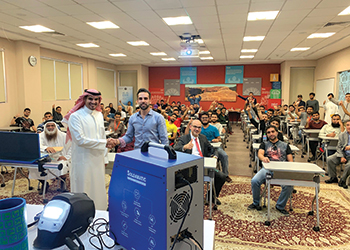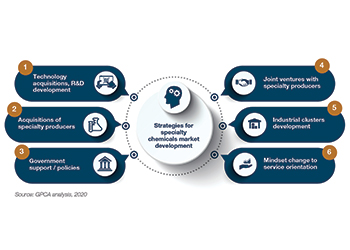
 C-level executives speak at the virtual edition of GMIS
C-level executives speak at the virtual edition of GMIS
C-level executives from leading organisations have called upon countries to step up efforts to reduce occupational accidents by investing in digital technologies and tools
The world needs a paradigm shift in the way that we manage risk and safety as Covid has showed that the traditional way of looking at all the ways damage could occur are failing us, say experts.
"Black Swans happen that we haven’t planned for and we need to assume that the worst is Going to happen and build resilience into systems so that no matter what hits, they are able to absorb and bounce back," World Health Organisation (WHO) Chief Information Officer Bernardo Mariano and Lloyd’s Register Foundation’s CEO Richard Clegg said at the Virtual Edition of the Global Manufacturing and Industrialisation Summit (#GMIS2020).
Hosted by journalist and news anchor Laura Buckwell, the virtual panel discussion on ‘From factory floor to the EXIT door: risk and compliance in a post-Covid-19 world’ is the third session of the #GMIS2020 Digital Series that will lead up to the Virtual Summit on September 4 and 5. The experts highlighted how occupational accidents are still far too common and lead to more deaths than the coronavirus pandemic, adding that countries should increase efforts in digital technologies and tools that always existed to drive a better collective global response to a crisis.
They called for a new paradigm for mitigating risk, a $863 billion SafetyTech market and accelerated cross-border telemedicine.
The acceleration and scale-up of digital technologies will be key to building more resilience into critical infrastructure systems in order to better prepare for similar shocks in the future or a potential second wave of the current outbreak.
Mariano said to develop successful health and safety protocols in the factory floor and public health security systems, we need a high level of preparedness. While innovation is vital to resolve immediate challenges caused by the pandemic, scaling-up these innovations is crucial.
"Today, countries are racing towards finding a vaccine. The real challenge is the supply chain – how do you scale up the production to make sure it reaches the whole world. Scale-up of innovation at every level, I think is an area, we should do better," Mariano said.
Clegg said every year around 2.3 million people die from occupational accidents or work-related diseases around the world, about one every 15 seconds, and that addressing this requires a technology shift in safety accompanied by international regulations, codes, and standards.
He said it is imperative that we harness the technologies of the Fourth Industrial Revolution (4IR), such as Artificial Intelligence (AI), the Internet of Things (IoT) and robotics, for the betterment of humanity and to make the world a safer place. A study by Lloyd’s Register Foundation revealed that the market for emerging safetytech technologies could be worth up to $863 billion by 2023. However, he added that it was important to anticipate and manage the risks associated with these new technologies to ensure they are applied safely. The response to the pandemic from a technology point of view has been quite primitive in some ways, relying on "blunt and centralised" interventions such as lockdowns, social distancing, and testing, Clegg said. However, he predicted that the crisis would be a catalyst for improvements in technology and access to better data that would allow more sophisticated responses in the future.
"With better insight, we could make better interventions. The digital universe is growing all the time, and we need mechanisms to be able to share this data for epidemiological studies and developing AI tools to look for patterns in that data. This is an international challenge requiring international solutions, and that’s where collaboration needs to happen," Clegg said.
Mariano said the pandemic had exposed that digital transformation in the healthcare sector lags significantly behind other sectors, which needs to be rapidly addressed.
He said the crisis offered an opportunity to accelerate the utilisation of some technologies, citing the example of telehealth and telemedicine as an existing technology that could have been leveraged during the pandemic. "No country allows telemedicine to be used across borders. We’ve seen health systems collapse in countries that have what we would consider good health systems. And of course, there were other people who have other diseases that were impacted because of Covid-19, and telehealth and telemedicine could have supported that," Mariano said.
Mariano highlighted that while it is essential to have access to Covid-19 tools, the focus should continue to be on testing to prepare for a potential second wave of the pandemic. We need to develop rapid-test kits which are affordable and easily accessible to all.
He urged the private and public sectors, and academia to come together and quickly learn the lessons of the pandemic. The new normal post Covid-19 will include adopting and adapting to the new ways of working and staying safe while enhancing health and safety measures at a factory level to ensure production, economy, revenue and outcome are not gravely impacted as they are today.








































































